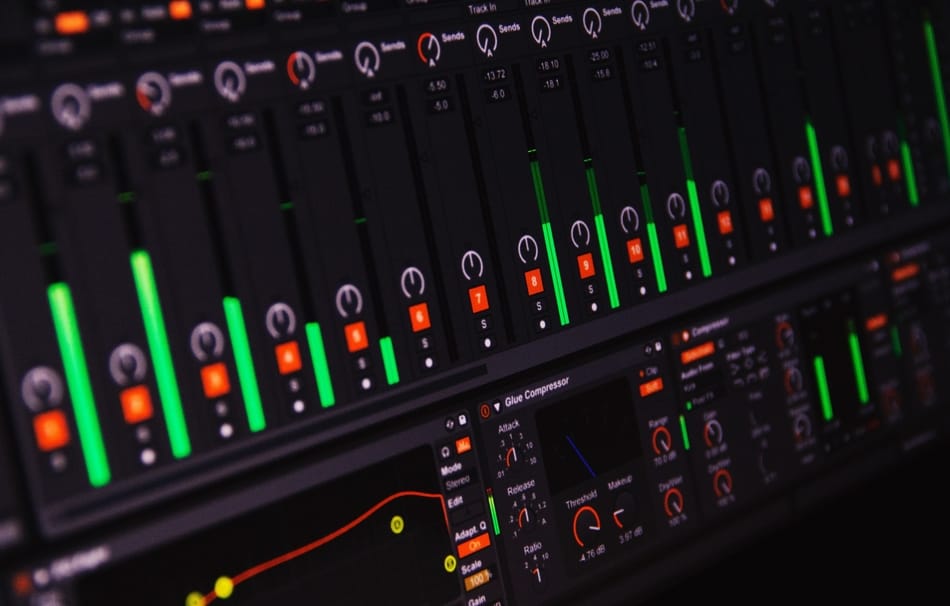A common question amongst engineers, producers, and music makers alike is, “which digital audio workstation (DAW) do you use?” The first time someone asked me this question, I was a new student at Berklee aspiring to join the music production and engineering major. The question felt more like an investigation into my qualification for the program rather than innocent curiosity. For a while, I felt ashamed to share with anyone that I started producing music on GarageBand for fear that it reflected my lacking skill set. I even curated my own impressions of people based on the DAW they chose, assuming others were doing the same about my colleagues and me. I put Pro Tools on a pedestal and believed it was the only “correct” DAW to fulfill recording, editing, and mixing needs. Truthfully, I was stuck in this bubble for a while.
During the pandemic, I had the space to change my perspective on a lot of the opinions and ideas I picked up while at music school, and DAW choice was one such opinion. When I think of the same question now, it seems more equivalent to asking someone about their zodiac sign. I believe that DAWs have their own personalities that reflect the kind of creator that uses them. I experienced this through the development of my own production as I migrated from using Pro Tools to using Ableton Live.
I learned Pro Tools as a means for servicing the musicians that I was working with when I began focusing on engineering recording sessions and mixing. I knew that it was the main DAW used in professional recording studios for tracking live instrumentation, and I was intrigued by the technicality of it all. In a way, this took my mind off of the competitive environment of a hyper-talented musical community and gave me the chance to shine somewhere else. I saw Pro Tools as a very manually controlled software that encouraged me to take control of the intricate details of every recording session. Setting up the session parameters, I/O template, and playback engine and ensuring a smoothly run session was the ultimate expression of my technical competence.
While I still love to use Pro Tools for recording vocals, vocal tuning, and time-based editing and mixing, I recently recognized that Pro Tools wasn’t serving my needs as a creator. During the pandemic, I shifted gears to focus on my own music again, but I felt stuck in a pattern of using Pro Tools like it wasn’t meant for me. In order to form a healthier relationship with the DAW, I needed to step away from it and dive deeper into my own artistic desires.
While I tried using Logic Pro in the past for my music production, I struggled to break away from software instrument presets (I am a strong advocate for creating with presets, but I felt that I often trapped myself into a different sonic message than I intended for the song). I still felt like Logic Pro was making a lot of choices for me like EQing, routing, and time-based effects, and I even felt less in control with the playlist comping. This isn’t to say that Logic Pro is a bad DAW, although I might’ve assumed that a few years ago. There are loads of excellent songwriters and producers that work seamlessly in Logic Pro and make incredible music. I never needed to label Logic Pro a “bad DAW” just because it was bad for me. I only needed to recognize why Logic Pro wasn’t working for me, which stemmed from developing unhelpful habits that stifled any progress in producing a song.
I used Ableton Live lightly for some of my electronic production classes, but I never took the time to learn how I could curate the program to suit my songs. This was mostly because during my education I was purposefully distracting myself from discovering how a DAW like Ableton Live could serve me, so I didn’t have to discover the vulnerable desire within myself to use my production skills for me. With the space of the pandemic, I saw the chance to teach myself how a DAW that was untarnished by any of my own bias or insecurity could function as a vessel for my artistic evolution. Ableton Live had just the right balance of suggested presets and easy-access controls and still technical options to exercise the engineering part of my brain. I had ideas for how I wanted the electronic elements in my recorded music and performances to sound, and I had a much easier time bringing them to life and enhancing them in Ableton Live. I continue to learn more in Ableton now by practicing patience with the techniques I’m finding in it and by piecing my original music together in a calm and kind manner.
DAWs are less like a uniform you have to wear and more like an eclectic wardrobe that fits you perfectly. I used to mindlessly pass judgment on the tools that others in my field worked with, and with my own experiences, I’ve changed my mindset to accept that there is room in this world for everyone and everything. There is in fact space for all kinds of creators and musicians with unique ideas and messages and various software to support that reality. This is a dramatic way of saying use the DAW you love and not the one someone told you to use.
